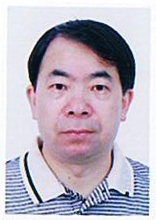
Long-ping Wen
South China University of Technology, China
Title: Exploiting nanomaterial-induced pro-survival autophagy for cancer therapy
Biography
Biography: Long-ping Wen
Abstract
Autophagy, a key cellular degradation process, is a common response of cells upon exposure to nanomaterials. A variety of nanomaterials, including carbon, metal, and rare earth oxide nanoparticles, have been demonstrated to induce elevated level of autophagy in different cell types. Autophagy induced by nanomaterials may be either pro-survival or pro-death, and the different fate on the affected cell can be differentially exploited to enhance cancer therapy. In this talk, I will focus on the pro-survival aspect of the autophagy induced by namomaterials and how it may be exploited for cancer therapy. First, I will summarize our published work on silver nanoparticle-induced autophagy, its pro-survival nature and the enhanced therapeutic efficacy upon its inhibition. Then I will present our recent unpublished work on cancer photothermal therapy (PTT) facilitated by a type of CuPd tetrapod nanoparticles (CuPd TNPs-1). These unique nanoparticles exhibited superior NIR-assisted photothermal conversion efficiency and induced pro-survival autophagy in a shape- and composition-dependent manner. Inhibition of autophagy with the autophagy inhibitor 3-methyl adenine (3-MA) had a remarkable synergistic effect on the anti-cancer efficacy of CuPd TNPs-1-mediated PTT both in triple-negative (4T1) and drug-resistant (MCF7/MDR) breast cancer models, as it helped to achieve a level of efficacy unattainable with CuPd TNPs-2, the similarly shaped alloy nanoparticle that had a higher photothermal conversion efficiency but no autophagy-inducing activity. This work provided a proof-ofconcept for a novel chemo-PTT strategy, in which traditional chemotherapeutic agents are replaced by autophagy inhibitors. This strategy is applicable to any PTT-ready nanomaterial with the capability of inducing pro-survival autophagy and should be particularly useful for eradicating drug-resistant cancer.

